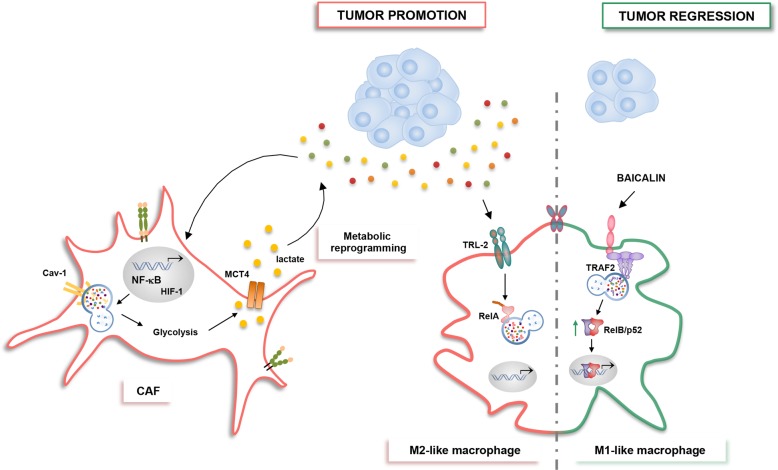Fig. 3. NF-κΒ and autophagy crosstalk in the TME-associated cells can either suppress or promote tumorigenesis.
Reactive oxygen species (ROS) generated by cancer cells promotes NF-κΒ and HIF-1 activation in CAFs. In turn, these two transcription factors induce the autophagic degradation of caveolin 1 (Cav-1). Consequently, loss of Cav-1 amplifies oxidative stress and triggers glycolytic catabolism and lactate extrusion, thus promoting the anabolic growth of adjacent cancer cells. In TAMs, the autophagic degradation of RELA/p65 induced by TLR2 activation promotes the M2-like phenotype in the context of HCC. On the contrary, the lysosomal degradation of TRAF2 induced by baicalin treatment determines the transcriptional activation of RelB/p52 pathway, thus reprogramming TAMs towards the pro-inflammatory M1-like phenotype and counteracting HCC.

